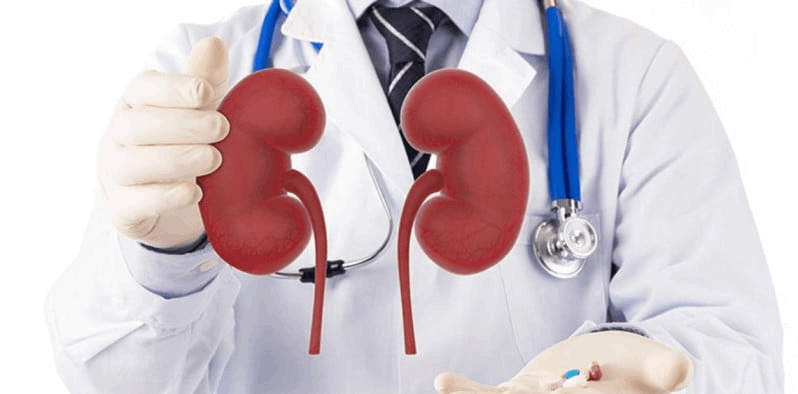Kidneys are responsible for filtering waste, maintaining fluid balance, and regulating essential minerals in the body. These functions make kidneys a valuable organ of the body. Nephrologists specialise in diagnosing and treating conditions that affect kidneys. Some of the best nephrologists in Delhi offer world-class treatment for a wide range of kidney-related conditions. In this guide, let’s understand the importance of kidney health and major health concerns related to kidneys.
Why Kidney Health Matters
Kidneys perform essential functions that keep the body in equilibrium, including:\
- Filtering toxins and waste from the blood to prevent their accumulation.
- Regulating blood pressure by balancing water and salt levels.
- Maintaining electrolyte balance is essential for muscle and nerve function.
- Supporting bone health and red blood cell production by activating vitamin D and releasing erythropoietin.
When kidneys fail to function properly, it can lead to severe complications such as fluid retention, electrolyte imbalances, and toxic buildup in the bloodstream, necessitating timely intervention by an experienced nephrologist.
Common Kidney Conditions Treated by Nephrologists
Following are the common kidney problems that only a nephrologist can diagnose.
Chronic Kidney Disease (CKD)
CKD refers to the gradual and irreversible decline in kidney function over months or years. It is commonly caused by underlying conditions like diabetes and hypertension, which put excessive strain on the kidneys. If left untreated, CKD can progress to end-stage renal disease (ESRD), requiring dialysis or kidney transplantation.
Treatment options include:
- Medications to control blood pressure and reduce protein loss in the urine.
- Lifestyle modifications, such as adopting a kidney-friendly diet and limiting salt and protein intake.
- Routine monitoring to track kidney function and detect potential complications.
- Early interventions to slow disease progression and prevent the need for dialysis.
Kidney Stones
Stones are solid mineral and salt deposits inside the kidneys due to concentrated urine or imbalances in minerals. Symptoms often include intense pain in the back or sides, blood in the urine, and frequent urination. Severe cases may lead to infections or blockages.
Treatment options include:
- Medications to dissolve small stones and relieve pain.
- Extracorporeal Shock Wave Lithotripsy (ESWL) to break down larger stones into passable fragments.
- Ureteroscopy or surgery to remove stones causing obstructions.
- Dietary changes to reduce recurrence by managing calcium and oxalate intake.
Acute Kidney Injury (AKI)
This injury happens when the kidneys suddenly lose their ability to filter waste due to factors like severe infections, dehydration, or drug toxicity. Unlike CKD, AKI is often reversible with prompt medical attention, but delayed treatment can result in permanent kidney damage.
Treatment options include:
- Immediate identification and management of the underlying cause.
- Temporary dialysis to support kidney function during recovery.
- Fluid balance management to avoid overloading or dehydration.
- Close monitoring to prevent further damage and aid recovery.
Glomerulonephritis
An inflammation of the tiny filtering units in the kidneys called glomeruli causes glomerulonephritis. This condition is often triggered by infections, autoimmune diseases, or genetic factors and can result in blood and protein leakage into the urine. If untreated, it may lead to CKD or kidney failure.
Treatment options include:
- Immunosuppressive medications to manage autoimmune-related inflammation.
- Plasma exchange therapy removes harmful antibodies from the blood.
- Lifestyle adjustments, such as limiting salt and protein intake, ease the burden on the kidneys.
- Treating associated infections to prevent worsening of the condition.
Polycystic Kidney Disease (PKD)
It is a genetic condition marked by the development of numerous fluid-filled cysts in the kidneys, which can enlarge and damage the organs over time. It may also lead to high blood pressure, kidney infections, or kidney failure in advanced cases.
Treatment options include:
- Medications to control high blood pressure and slow cyst growth.
- Frequent monitoring to assess kidney function and detect complications early.
- Surgical intervention to drain or remove large cysts causing discomfort.
- Dialysis or transplantation for managing end-stage PKD.
Kidney Infections (Pyelonephritis)
Pyelonephritis is a bacterial infection of the kidneys that often arises from untreated urinary tract infections (UTIs). Symptoms include fever, back pain, and painful urination. Left untreated, kidney infections can lead to permanent scarring or sepsis.
Treatment options include:
- Antibiotic therapy to eliminate the infection.
- Hospitalization in severe cases for intravenous antibiotics and hydration.
- Preventive measures, such as maintaining proper hygiene and staying hydrated, to avoid recurrent infections.
- Follow-up care to ensure the infection is fully cleared and kidneys remain healthy.
Role of the Best Nephrologists in Delhi
The expert and best nephrologists in Delhi from BLK-Max Super Speciality Hospital are highly skilled in providing:
- Comprehensive diagnostic evaluations, including blood tests, imaging, and kidney biopsies.
- Personalised treatment plans tailored to each patient’s specific needs.
- Advanced procedures like dialysis, kidney transplants, and minimally invasive surgeries.
- Long-term support for managing chronic conditions and preventing complications.
The patient-centric approach of the medical staff of the hospital ensures optimal outcomes and improved quality of life.
When to Consult a Nephrologist?
Consult a nephrologist if you experience any of the following symptoms:
- Persistent swelling in the legs, feet, or face.
- Blood or protein detected in urine tests.
- Unexplained fatigue or changes in energy levels.
- High blood pressure that does not respond to standard treatments.
- Reduced urine output or frequent nighttime urination.
Early detection and timely care can improve kidney health and prevent long-term complications.
Conclusion
Maintaining kidney health is essential for a healthy life. Any signs of dysfunction should be addressed immediately. Delhi’s top nephrologists use advanced diagnostic tools and treatment methods to manage even the most complex kidney issues. If you’re experiencing symptoms or need expert care, consult the best nephrologists in Delhi from BLK-Max Super Speciality Hospital to protect your kidney health and enhance your quality of life.

